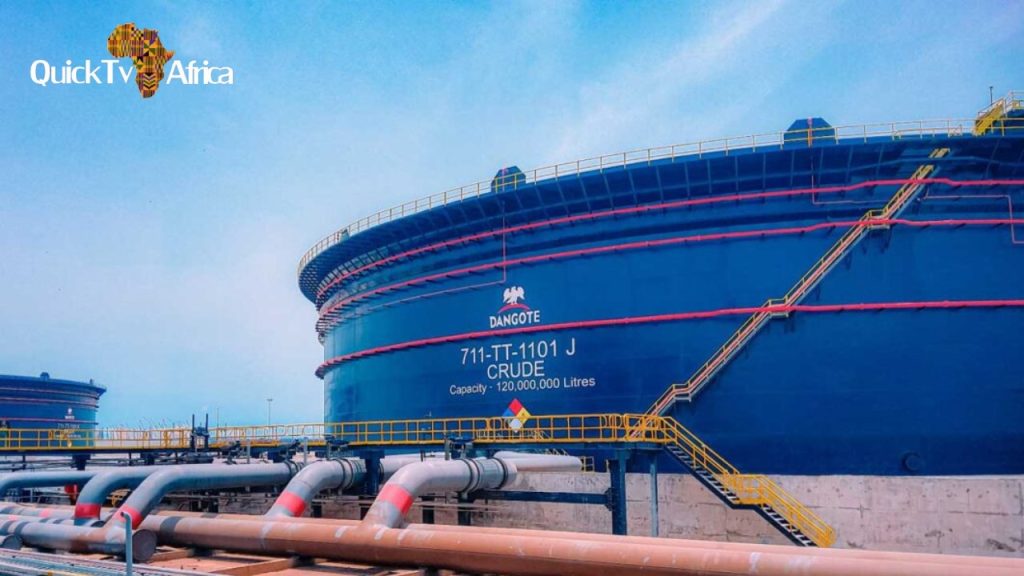Impact of Direct Product Lifting from Dangote on Petrol Prices
The recent agreement between the Independent Petroleum Marketers Association of Nigeria (IPMAN) and Dangote Refinery marks a significant shift in the Nigerian petroleum landscape. This collaboration is poised to have profound implications for petrol prices, availability, and the overall dynamics of the fuel market in Nigeria.
Reduction in Petrol Prices
One of the most immediate and notable outcomes of this agreement is the anticipated reduction in the price of Premium Motor Spirit (PMS), commonly known as petrol. Abubakar Garima, the president of IPMAN, emphasized that by lifting products directly from the Dangote Refinery, marketers can bypass intermediaries such as the Nigerian National Petroleum Company (NNPC) and depot owners. This direct purchasing model eliminates additional costs typically associated with these intermediaries, which have historically inflated petrol prices for consumers.
Garima stated, “The masses are looking for how we, Independent Petroleum Marketers, can reduce price for them.” By reducing the profit margins that would have gone to third parties, the savings can be passed on to consumers. As a result, petrol prices are expected to decrease within the coming weeks, providing much-needed relief to the Nigerian populace, who have been grappling with high fuel costs.
Enhanced Availability of Fuel
In addition to price reductions, the agreement is set to improve the availability of petrol across the country. Garima pointed out that the previous system often led to delays in fuel supply, as marketers would pay for products upfront, only to face hold-ups from retailers. This situation frequently resulted in fuel scarcity at filling stations, frustrating consumers and disrupting transportation.
With direct access to the Dangote Refinery, the supply chain becomes more efficient. Marketers can now receive products promptly, allowing them to discharge fuel directly to their filling stations without unnecessary delays. This streamlined process is expected to mitigate fuel shortages, ensuring that consumers have consistent access to petrol.
Financial Stability for Marketers
The financial dynamics between IPMAN and NNPC are also evolving. Garima revealed that NNPC has begun to settle its substantial debt of N4 billion owed to marketers. This development alleviates some of the financial burdens that independent marketers have faced, enabling them to operate more effectively. As the debt is paid down, marketers can focus on their core business of distributing fuel rather than managing outstanding debts.
Garima noted, “Our money with them is reducing drastically. That one is not a problem to us now.” This financial stability is crucial for marketers as they navigate the complexities of the fuel market and strive to maintain competitive pricing.
Long-term Implications for the Fuel Market
The agreement between IPMAN and Dangote Refinery is not merely a short-term fix; it has the potential to reshape the long-term landscape of the Nigerian fuel market. By establishing a direct supply chain, the collaboration could encourage other refiners and marketers to adopt similar models, fostering a more competitive environment. This competition may lead to further price reductions and improved service delivery for consumers.
Moreover, the partnership aligns with broader economic goals of enhancing local production and reducing reliance on imports. By sourcing petrol directly from a domestic refinery, Nigeria can work towards greater energy independence, which is vital for the nation’s economic stability.
Conclusion
In summary, the agreement between IPMAN and Dangote Refinery is a pivotal development in Nigeria’s petroleum sector. It promises to lower petrol prices, enhance fuel availability, and provide financial relief to marketers. As this collaboration unfolds, it could serve as a model for future partnerships within the industry, ultimately benefiting consumers and contributing to a more robust and resilient fuel market in Nigeria. The implications of this agreement extend beyond immediate price reductions, potentially paving the way for a more sustainable and efficient energy landscape in the country.

